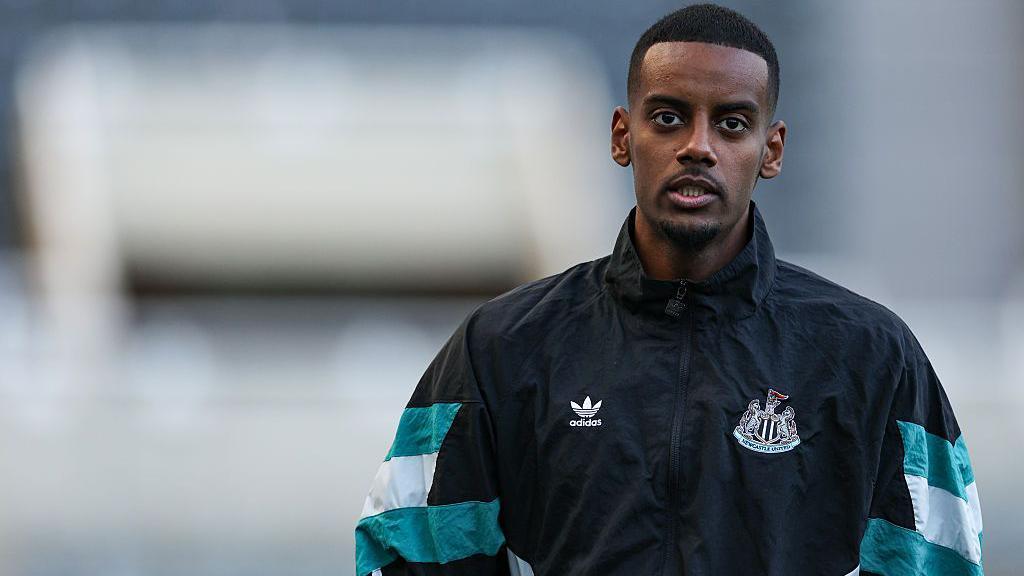The ongoing saga surrounding Newcastle United’s striker Alexander Isak has gripped fans and analysts alike, marked by tensions stemming from a mix of contractual expectations, perceived broken promises, and ambitions for the future. The narrative has taken a turn as Isak openly stated, “promises were broken and trust is lost,” expressing his discontent with the club’s leadership regarding his future, specifically in reference to his desire to join Liverpool. This situation raises several questions that merit examination: what caused Isak’s dissatisfaction, how will this impact team dynamics, and what potential exists for his re-integration into the squad?
This friction can be traced to a wider context. Just nine months ago, Isak was celebrated by Newcastle supporters at St. James’ Park, lauded as a transformative figure within the team. Yet his relationship with the club seems to have soured significantly, leading to a public statement that challenges the organization’s commitment to him. In response, Newcastle management quickly clarified that “no commitment has ever been made that Alex can leave this summer,” highlighting a misalignment between player aspirations and the club’s goals amidst financial constraints.
At the heart of Isak’s grievances appears to be a stalled negotiation related to a contract extension last summer. Although he had a contract extending for four years at that time, discussions to renew him were sidelined due to Newcastle’s concerns related to Profit and Sustainability regulations. The club had narrowly avoided breaching these regulations by offloading other players, including Elliot Anderson and Yankuba Minteh. Nevertheless, Isak’s expectations for a lucrative new contract that would elevate him to the top of the wage hierarchy have not been met, further breeding frustration.
As Newcastle ventured into renewal talks with other players—such as Anthony Gordon—it became apparent that Isak’s case was placed on the back burner. Compounded by significant changes in the club’s upper management, including the exits of sporting directors Dan Ashworth and Paul Mitchell, it was uncertain when or if Isak’s demands would be revisited. This led to a growing rift between the player and the club, particularly as Isak has demonstrated a desire to explore opportunities at other top-tier clubs.
The wider Newcastle team has felt Isak’s absence keenly, with the side struggling in the Premier League without its key striker, managing no victories and failing to score across their last six matches while he was out. Despite a faltering start to the season, the camaraderie within the squad has reportedly strengthened, as players rallied together in a show of unity—a testament to the tight-knit group that Newcastle has cultivated under manager Eddie Howe. However, Isak’s absence has not gone unnoticed, illustrating his importance to both the team dynamics and performance on the pitch.
Meanwhile, the discussions surrounding his potential re-integration into the squad remain complex. There is an understanding within the club that player careers are limited in duration, which fuels Isak’s ambition to compete at the highest levels, specifically in both the Premier League and the Champions League. Nonetheless, there are concerns shared by club officials about setting a precedent by allowing a player wishing to exit under contract to leave so freely. Newcastle’s management has so far stood firm against bids for Isak, rejecting a significant £110 million offer earlier in the month.
Many within the Newcastle community, including former players and fans, feel sympathetic to Isak’s aspirations but share a sense of betrayal regarding the manner in which he has expressed his desire to leave. Former Newcastle striker Les Ferdinand echoed this sentiment, suggesting that there were better ways for Isak to navigate the situation to maintain his legend status at the club. Current morale may have been tested by this episode, but there remains optimism that, with time, reconciliation could be achieved.
In conclusion, the situation surrounding Alexander Isak poses significant implications not only for the player and the Newcastle club but also within the intricacies of team morale and public perception. The ongoing saga will require thoughtful negotiation and understanding from both parties if a resolution is to be achieved, allowing the protagonist of this narrative to carve out a legacy that aligns with both his personal ambitions and the broader aspirations of the club.












